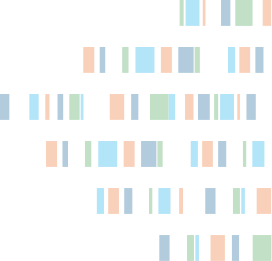Phylogenomic approaches now generate hundreds of loci representative of the whole genome that can be used for phylogenetic analyses. The South American lizard genus Liolaemus is the most species-rich vertebrate radiation from temperate zones (more than 265 described species), yet most higher-level phylogenetic relationships within Liolaemus remain poorly resolved. In this study, we used 584 nuclear loci collected using targeted sequenced capture to estimate the phylogenetic relationships among 26 species representing the two subgenera within Liolaemus (Eulaemus + Liolaemus), and all major groups within Eulaemus. Previous molecular and morphological-based phylogenetic analyses of Eulaemus based on a limited number of characters resolved few higher-level relationships, although one point of agreement is that the early divergence within Eulaemus corresponds to the lineomaculatus section, followed by the diversification of eight main clades that are strongly supported and recognized. Liolaemus probably experienced relatively rapid divergences during parts of its evolutionary history, and a phylogenomic approach was used to resolve the relationships among the major groups. The new analyses presented here support the division of Liolaemus into two subgenera, and resolve relationships among many of the major clades of Eulaemus with strong support. A Bayesian divergence dating analysis using 44 protein-coding genes provides an estimation of the split of the two Liolaemus subgenera of approximately 19,7 ma (95% HPD = 16,94 – 23,04), while diversification within Eulaemus started at 15,05 ma (95% HPD = 12,94 – 17,59) among the L. lineomaculatus and the L. montanus series by Mid Miocene. A novel phylogenetic network analyses for SNP data identified two hybridizing edges among different groups of Eulaemus at different points in time. Having a solid phylogenetic hypothesis of the main Eulaemus clades opens new opportunities to test a variety of macroevolutionary questions for this unique radiation.

Home » Phylogenomic data resolve higher-level relationships within South American Liolaemus lizards
Publications
Phylogenomic data resolve higher-level relationships within South American Liolaemus lizards
myBaits
Daicel Arbor Biosciences
5840 Interface Dr. Suite 101,
Ann Arbor, MI 48103
1.734.998.0751Ann Arbor, MI 48103
©2024 Biodiscovery LLC
(d/b/a Daicel Arbor Biosciences)
All Rights Reserved.
(d/b/a Daicel Arbor Biosciences)
All Rights Reserved.
Design and development by Raincastle Communications.
